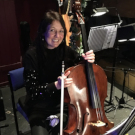PPE Workwear - What You Need
PPE, Personal Protective Equipment, is designed to keep employees safe in their working environments. In many industries, it is a legal requirement to wear PPE workwear, such as medical, veterinary, healthcare, manufacturing, food and drink, mining, chemical and research, to name but a few. But in industries such as retail, although they don't have to wear PPE, many employees wear personal protective equipment, such as face masks, for everyone's safety.

New laws from 6 April 2022 made it a legal obligation that employers provide 'workers' in service (limb workers) with PPE equipment. But what is classified as PPE workwear, and what do you need to keep your staff and contractors safe?
What is PPE workwear?
According to the PPER 1992, personal protective equipment is defined as "all equipment (including clothing affording protection against the weather) which is intended to be worn or held by a person at work and which protects the person against one or more risks to that person’s health or safety, and any addition or accessory designed to meet that objective."
PPE protects you from hazards in the workplace, the transmission of germs and droplets, and includes items such as:
- Gloves
- Face masks and respirators
- Safety glasses, goggles, face shields and eye protection
- Shoe covers and protective footwear
- Earplugs and muffs
- Hard hats, head covers
- Overalls, gowns, coveralls, over-sleeves, vests and full-body suits

To meet the legal requirements, PPE workwear must be compatible, maintained and correctly stored, according to the HSE. In addition, all workers must use PPE correctly, following instructions and training in how to use it from their employer.
When to use PPE workwear
We're used to seeing PPE used in hospitals, care homes and research labs, but it is also used in other industries to reduce exposure to hazards that could cause serious injury. This could be through physical, mechanical, electrical, chemical and other types of hazards. Essentially, if there's any risk to a person's health and safety PPE workwear must be worn.
As well as providing the necessary PPE equipment, employers are also required to provide sufficient instruction and training on the use of personal protective equipment. The aim is to make sure they know:
- When it is necessary to use PPE
- The type of PPE required
- How to correctly put on, adjust, wear and take off PPE
- The limitations of PPE
- The correct care, maintenance, lifespan and disposal of PPE
It is recommended that employers implement a PPE programme that guides an employee or worker when and where PPE is needed, the hazards they need to protect against with PPE, the instruction and training available, and the use of PPE. The programme should be monitored on an ongoing basis to make sure it is consistently effective.

Common types of PPE
Some types of PPE are more common than others, but there are also different grade levels of certain items, such as face masks. Let’s look at some types of PPE in more detail.
- Face masks - As a nation, we've grown used to wearing face masks to protect ourselves and others from Covid-19. Indeed, many people have continued to wear them in public places. But not all face masks are the same. Different grades of face masks offer three levels of protection. Regulated by EN149, their protection is graded according to FFPs (filtering facepieces), which are FFP1. FFP2 and FFP3, with the latter providing the highest level of protection. FFP1 and FFP2 don't offer sufficient protection in certain industries, such as healthcare. NHS staff and healthcare workers must use NHS-approved PPE, which is marked CE. The pandemic did drive the need for see-through face masks, i.e. a clear cover over the mouth area, to improve communication with people who have a disability. Most face masks are not reusable, but there are non-woven masks that are. Another type of face mask is the antimicrobial snood, which covers much more of the face and the neck.
- Protective face shields - These also became popular during the pandemic and are another form of face mask. For greater protection, it is best to use them with face masks. Many of today's face shields are reusable once they have been cleaned with an anti-bacterial spray. They are a good option if you don't have goggles or safety glasses; in fact, you can get face shields with built-in goggles.
- Protective body clothing - This includes coveralls, disposable aprons, over-sleeves and shoe covers; you will often see these in a medical or surgical environment. As with face masks, NHS workers must wear protective clothing that provides a high level of protection and is NHS-approved.
- Respirators - These are worn when working in dusty or chemical environments and incorporate filters that trap any harmful particles before air is breathed in by the wearer.
- Hard hats - In the construction, mining, engineering, oil and gas industries, as well as jobs like tree surgery and on-site work, wearing hard hats is essential to protect the wearer from serious harm and severe injuries.
- Footwear - Safety footwear protects feet from impact, penetration, slips, and falls. They are an essential piece of kit for workers in many industries, including construction, manufacturing, and healthcare.
- High-visibility clothing - High-visibility clothing makes workers more visible to others, reducing the risk of accidents. It is essential for workers in areas with moving vehicles, low lighting, or other hazards.
At ESE Direct, we also provide a wide selection of PPE accessories and signage. Our PPE at Work Regulations poster reminds staff what type of PPE equipment should be worn and when. We also supply floor markers that indicate to a worker they are entering an area where full PPE must be worn. PPE safety check mirrors are ideal for staff to ensure they are wearing their PPE correctly, while PPE clothing cupboards, storage cupboards and lockers keep staff personal protective equipment safe and provide suitable places to store regularly used, disposable PPE.
With more than 40 years of knowledge and experience in the industry and exceptional customer service, you can trust ESE Direct for all your PPE needs. Call us now on 0808 258 1008.

Author Bio - Debs
Digital marketer, social media, content writer, musician, sloth-lover, tea-drinker.




